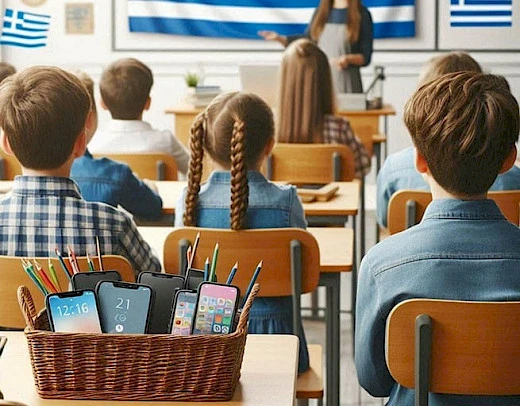Greece Closes Hundreds of Schools Due to Critical Demographic Crisis

Amid a sharp decline in birth rates and youth outflow, Greece is preparing to close hundreds of schools, facing systemic changes that threaten the sustainability of its social infrastructure.
How Many Schools Will Not Open
For the 2025–2026 academic year, 721 out of 13,478 schools will suspend operations, including 324 primary schools and 358 kindergartens. This decision was made due to the inability of schools to enroll the minimum required number of students — fewer than 15 per school.
According to the Ministry of Education, the number of students has dropped to about 1.21 million, more than 150,000 fewer than in 2018–2019. In some rural regions and remote islands, children sometimes have to travel up to 80 km daily to reach school.
Demographic Reasons
The roots of the crisis run deep: the fertility rate has fallen to approximately 1.3 children per woman, well below the replacement level (2.1). The decrease in young people is caused by the effects of the debt crisis, mass emigration, and an aging population.
Financial Times reports that 766 schools, more than 5% of educational institutions, will suspend operations. The number of primary school students has decreased by 111,000 (−19%) since 2018.
Statements by Authorities and Experts
Education Minister Sofia Zacharaki stated that “classrooms reflect our maternity wards,” and the decline in birth rates has been occurring for decades. In villages and remote islands where school numbers are critically low, exceptions are made: openings are allowed for a minimal number of students, as on the island of Pserimos, where the school will reopen for 5 students.
However, experts are convinced that financial incentives alone will not solve the problem. Even wealthy European welfare states (e.g., Denmark and Sweden) have not managed to raise fertility to replacement levels.
Consequences and Long-Term Outlook
Changes in birth and mortality rates threaten not only the immediate but also the future generation: declining student numbers lead to school closures, reduce access to education, especially in remote regions, and increase social and economic inequality.
Previously, as part of the National Demographic Plan, Greece announced €20 billion in investments by 2035 to stimulate fertility, including cash benefits and tax incentives. Even now, the country spends about €1 billion per year on such measures, but the effect remains limited.
Summary
In the 2025–2026 school year, 721 schools will be closed (324 primary schools, 358 kindergartens).
The number of students has decreased by at least 150,000 since 2018 — now about 1.21 million.
Fertility has fallen to ~1.3 children per woman, one of the lowest in the EU.
Authorities are taking measures, but experts say more serious changes are needed.
You may also be interested in:
- Attempted bombing near a bar thwarted in Limassol: 44-year-old man detained
- Driver warning: landslides and water accumulation on the Limassol — Paphos highway
- Famagusta: artificial intelligence to be introduced in municipal services
- There are more pupils and students in schools and universities in Cyprus, and education spending has risen to €1.6 billion


